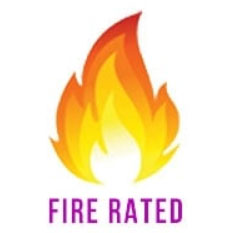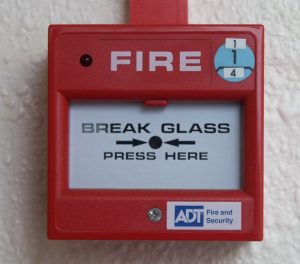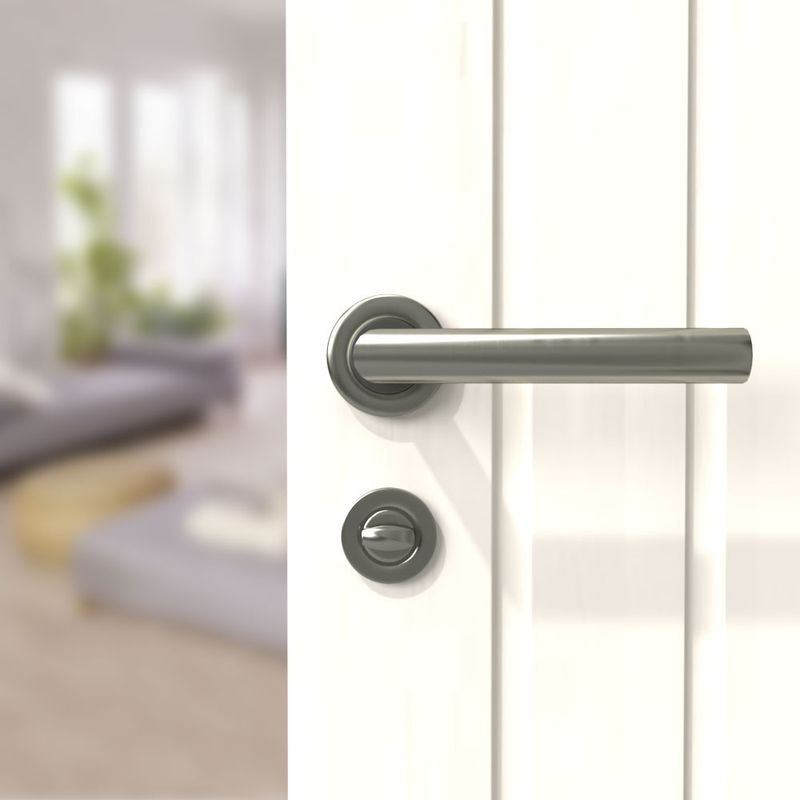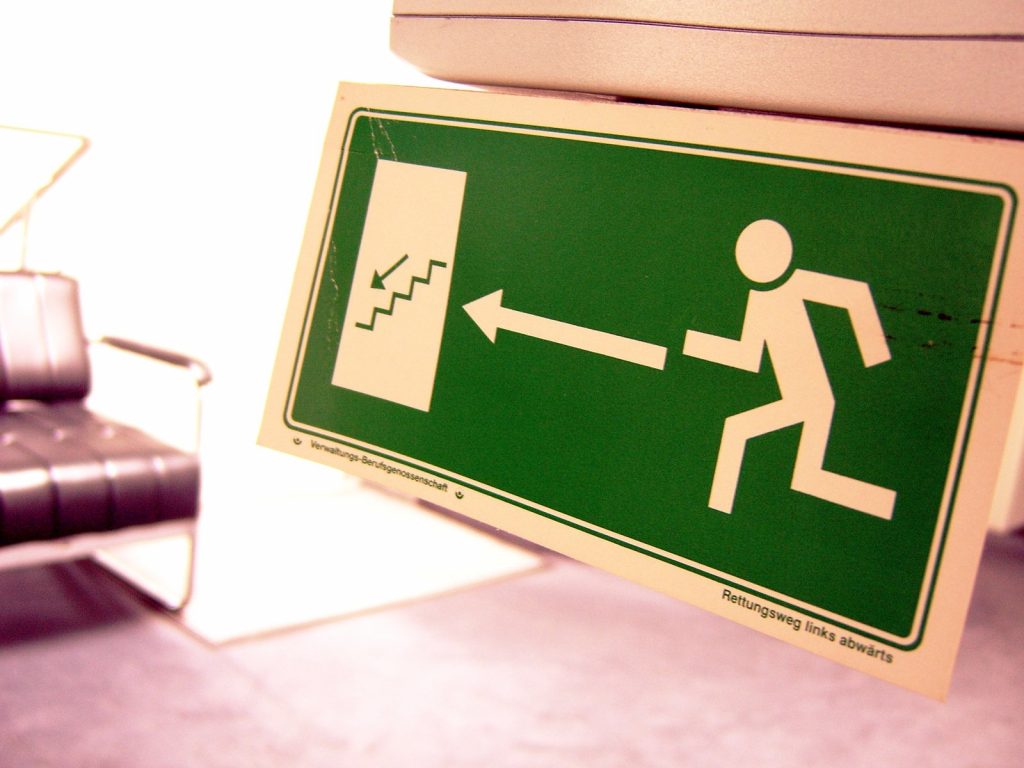Landlords in England and Wales must ensure that their apartments, apartment buildings, rented houses and Houses in Multiple Occupation (HMO) are compliant with the relevant regulations.
All the above properties plus any that are tenanted to a council, to a company on behalf of their employees, and any let holiday homes are all subject to stringent fire regulations.
Having said that, in this guide, we’re going to take a closer look at the requirements for fire doors in a rented property. Use our dedicated guide to find out more about Fire doors in non-domestic buildings.
Table of contents:
- Are fire doors a legal requirement in the UK?
- What are landlords responsible for?
- What can tenants do to stay safe?
- The bottom line
Are fire doors in a rented property a legal requirement in the UK?

Yes, fire doors in a rented property are indeed a legal requirement in the UK. The regulations specify the standards that fire doors must meet in terms of their construction, installation, and maintenance. These standards ensure that fire doors are capable of providing a barrier against the spread of fire for a specified period, usually 30 minutes or 60 minutes (referred to as FD30 or FD60 ratings, respectively).
It’s worth noting that fire safety regulations may differ slightly in different parts of the UK (England, Wales, Scotland, and Northern Ireland), but fire doors are generally considered a legal requirement for buildings where they are necessary to ensure the safety of occupants and to comply with building regulations.
The legal requirements for fire safety in domestic properties are outlined in the following official documents.
In England and Wales:
- The Regulatory Reform (Fire Safety) Order 2005
- Building Regulations 2010, Approved Document B (Fire Safety), Volume 1: Dwellings
In Scotland:
In Northern Ireland:
What are landlords responsible for?

Landlords have specific duties when it comes to their property.
Landlords in England and Wales must ensure that:
- At least 1 smoke alarm is installed on each storey, as per The Smoke and Carbon Monoxide Alarm (England) Regulations 2015.
- A carbon monoxide detector is present if there is an open fire/wood-burning stove etc.
- At least 1 fire extinguisher and fire blankets are present in houses with multiple occupants (i.e. student houses).
- There is an easy-to-access escape route from all areas.
- Any furnishings left in a property by the landlord must be deemed fire safe (this includes PAT testing electrical items for safety).
- External doors in flats are fire doors.
- Bedroom doors, or doors into separating ‘compartments’, in an HMO are fire doors.
- Regular fire door maintenance and inspection are carried out to ensure full working order.
- All fire doors have a working self-closing mechanism – they’re useless if open in a fire.

All these points are designed for the safety of those, particularly in shared spaces, including apartment blocks and shared housing.
It’s important to note that all fire safety responsibility lies with the landlord if a part of the building, or the doors, aren’t up to scratch.
Bear in mind that any death, accident or injury can lead to criminal prosecution. So, it’s worth getting it right the first time and maintaining standards.
What can tenants do to stay safe?

Landlords can provide all provisions for tenants to be safe, but tenants must also think logically about their choices and actions.
For example, they mustn’t block a fire escape route with shoes, bags, umbrellas and other items as this will make escape difficult.
Other things you can do as a tenant are:
- Don’t prop open fire doors in a rented property in any circumstances.
- Don’t leave open fires and kitchen appliances unattended.
- Ensure cigarettes and other similar items are put out fully and away from anything which might take a flame.
- Be mindful of candles and other naked flames.
- Don’t tamper with fire extinguishers and fire blankets.
- Report any damage to the building or fire doors in a rented property immediately.

The bottom line
To ensure compliance with fire safety regulations, landlords are advised to consult with local fire safety authorities or seek professional advice to assess the specific requirements for their rental property.
They should also familiarise themselves with the latest versions of the relevant legislation in the part of the UK where their rented accommodations are located.













